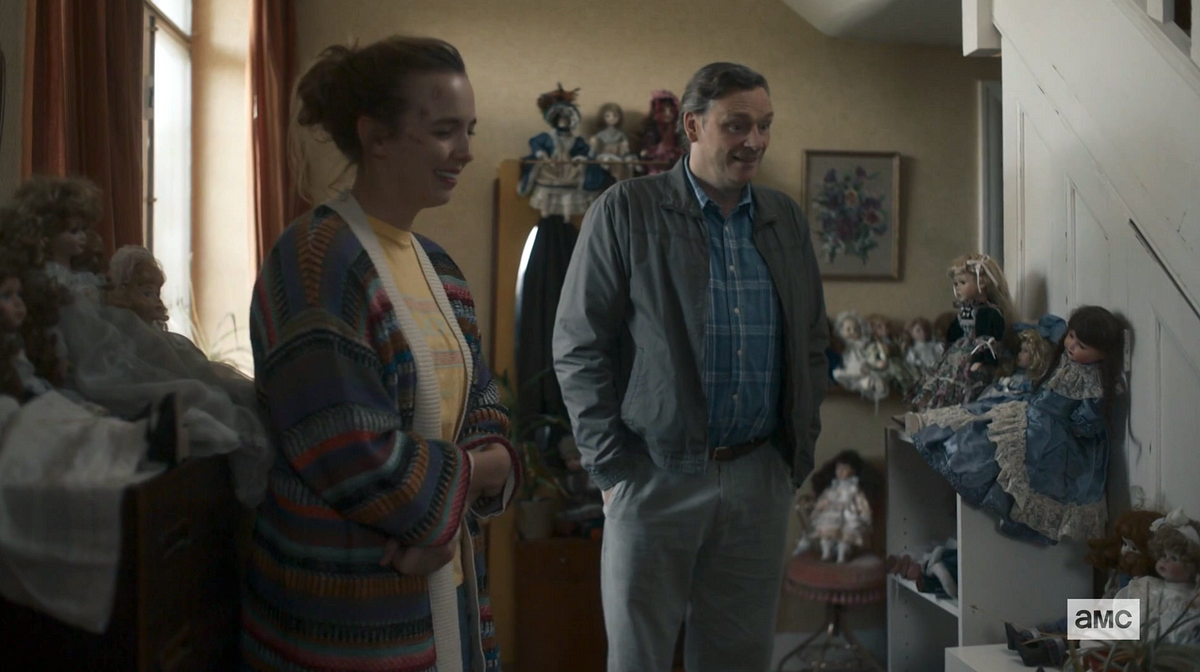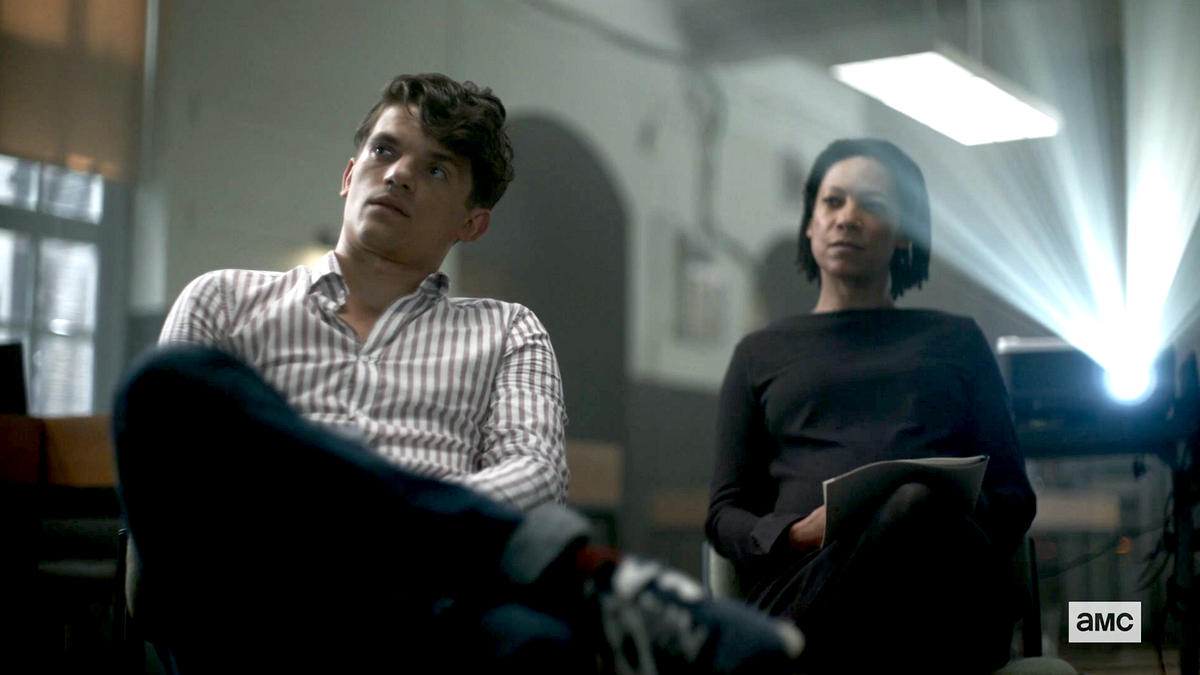Everyone has a weakness, even our favorite female assassin. From the moment we met her, Villanelle has been nearly bulletproof. Able to anticipate and manipulate any situation, she’s maintained her confidence and dominance, until this week’s episode. For the first time since Killing Eve began, we see Villanelle like never before — scared and vulnerable.
After stealing a new, more age-appropriate wardrobe from a laundromat, a wounded Villanelle finds herself perusing the aisles of a supermarket contemplating her next move. As she enters the frozen food section, she appears desperate and frustrated until she sees a nondescript man by himself. From the moment she innocently smiles and he hesitantly smiles back, it’s clear he’s her next target. In classic Villanelle fashion, she constructs a story of a damsel in distress, searching for a rescuer, and the man, Julian, quickly comes to her aid offering her a ride and a place to stay.
What happens next is unexpected. A female assassin whose finally met her match in the human embodiment of toxic masculinity and fragility. The moment Villanelle enters his house, she is faced with a frighteningly extensive collection of dolls. And this doll collection perfectly foreshadows Julian’s relationship with women.
Dolls in and of themselves embody the worst (and most petrifying) stereotypes of women. They are meant to be aspirational versions of young girls that you can dress up and manipulate for your own enjoyment. With delicate porcelain faces and tiny adult clothes, dolls are collected with the intent to only be admired. Obviously, if you view real women like this, you have a problem.
With Villanelle, Julian seems to believe he’s found a doll of his own. Although he insists he wants to take care of her, he continuously ignores her. As she begs for ibuprofen, Julian dismisses her, saying she’s being ridiculous and that she merely has a cold, returning only with flu medicine. The more she voices her concerns and needs, the more frustrated and dismissive he gets. Villanelle is not a wallflower, but unfortunately, with Julian she learns her only way to remain safe is to play the harmless, victim female role. He implements a similar system on his mother who lives in the house with dementia, locking them both in their rooms “for their own good.”
What’s truly terrifying about this episode is that instead of a dangerous Russian prison, this episode more accurately reflects the obstacles, both mundane and horrific that many women face everyday.

Meanwhile, Eve has returned to work with some new team members, Jess and Hugo. Hugo is a cocky and entitled-Eton grad who constantly questions Eve and her work — whether it’s helping her with a slideshow or interrupting her mid-sentence. While obviously not the same situation as Villanelle, Eve is experiencing the hurdles that many women face in the workplace from (annoying/patronizing male colleges). In the end, it’s satisfying watching Eve prevail as she correctly identifies that this new victim wasn’t’ killed by Eve but a new female assassin.

Killing Eve continues to use the narrative of a spy thriller to undermine gender stereotypes and expand the genre. This episode is specifically poignant as we see an example of the horrors that many real women fall victim to: men’s need for control and dominance. In the end, Villanelle escapes Julian, making me smile for all womankind as she stabs him. Eve similarly triumphs and as an extra bonus to us lady viewers, we receive a new great skin care routine courtesy of our favorite boss Carolyn Marten. (Google’s pigs’ placenta mask)

